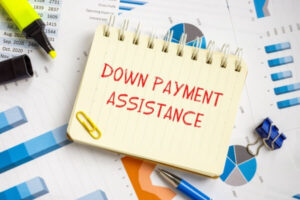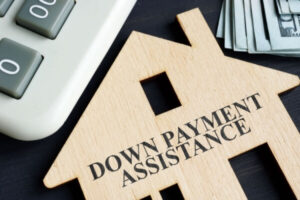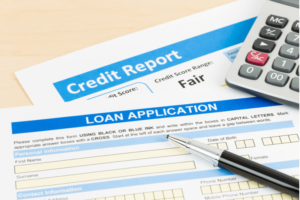Nearly 2,500 Downpayment Assistance Programs
Building a nest egg large enough to make a down payment as a first-time home buyer is among life’s most daunting challenges. Unless you have a rich relative, pulling together a five-figure payment in an age of high rents, credit card debt and student loans might seem impossible.
What many hopeful homebuyers don’t know is help is available. Nearly 2,500 programs around the country offer down payment assistance to prospective buyers and much of the money goes untapped.
Down payment assistance comes in many flavors. Some programs are extremely local, even concentrating of individual neighborhoods. State agencies run others and funds are available for purchases in many areas. Even better, the assistance programs often base how much money they can offer on housing prices in particular markets, meaning more money is available in high-cost areas like San Francisco.
The best news might be that nearly 90% of the nation’s programs have funds available.
Most Buyers Need Help with Down Payment
Homebuyers, especially those buying for the first time, believe that they need a 20% down payment to get a mortgage. That is the ideal situation, but not the norm.
The National Associating of Realtor’s 2017 Profile of Home Buyers and Sellers showed that the median down payment for all homebuyers was 10% and for first-time buyers, it was just 5%.
The only group even approaching 20% was the “repeat buyers” category, which offered a median down payment of 14%.
If you make a 20% down payment on a home, the advantages are clear:
- Reduces the monthly mortgage payment.
- You avoid having to pay private mortgage insurance or PMI, as it is popularly known.
- Lenders appreciate a large down payment because it reduces their risk. They reward the borrower with lower interest rates.
- In most cases, you have instant equity in your home. In other words, the house would sell for more than what you paid for it.
» Learn More: Minimum Down Payment for a First-Time Home Buyer
Assistance Varies by Location
So how do you get help with a down payment?
Qualified buyers can receive down payment assistance through loans, grants and tax credits. The programs offering the money are administered by state housing finance agencies, city and county governments, housing authorities, nonprofit organizations and even employers.
Some specialized programs earmark funds for people working in certain fields like education, law enforcement and health care. High-cost areas need workers in fields that don’t pay high salaries, so local governments offer down payment assistance to attract them.
Though much of the money is targeted at first-time buyers, quite a few programs aren’t restricted to newbies. These programs usually define a first-time buyer as someone who hasn’t owned a home in three years, so former homeowners are eligible if they’ve been out of the market.
Housing finance agencies, non-profits and governmental units typically use different approaches. Some offer aid directly to homebuyers who meet income and home-price criteria. Others only provide money for homes purchased in certain neighborhoods. Still others fund homebuilders who build in targeted areas. It’s important to evaluate each program to learn whether it meets your needs.
Live in Florida? Find out about Florida Down payment Assistance Programs
Types of Down Payment Assistance
Most programs convey aid using these financial mechanisms:
- Down Payment Help. These are often second or third mortgages or grants that provide no-interest loans, deferred payments and forgivable loans. Assistance varies, and in many cases the money can be used to cover closing costs, principal reductions and even home repairs. The amount of money available is often keyed to the cost of housing and income levels in the markets where they are available.
- Affordable First Mortgages. This assistance often comes from state housing agencies and his designed to reduce the size of mortgage payments. They often reduce the interest rate of a home loan to a level the buyer can afford. The help can also reduce closing costs, fees and mortgage insurance. To find out whether your state operates such programs, contact your state’s housing finance agency.
- The U.S. Department of Agriculture also offers two affordable mortgage programs. The Rural Direct Loan and the Rural Guaranteed Loan program are focused on rural communities and households with low- to moderate-income levels.
- Mortgage Credit Certificates. These are federal tax credits that can lower your income tax payment. State and local government agencies offer the credits, which the Internal Revenue Service caps at $2,000. These aren’t tax deductions, but actual credits that lower your income tax.
- Homebuyer Education is Required: Programs refer borrowers to an in-person or online homebuyer education course.
Home buyers can find information about what’s available locally through real estate multiple listing sites. Properties eligible for assistance will often have a symbol attached to the listing, alerting prospective buyers that help is available if they qualify. Real estate agents can also help, since they are generally familiar with the state, local and nonprofit agencies that offer assistance.
Home Builders Can Help with Down Payment
In some instances, home builders gain access to grants that they can use to help buyers afford new houses. The builders sometimes get grants that help them lower the cost of building in certain communities. In other cases, they subsidize buyers as a sales incentive.
Assistance can be used in conjunction with other homebuying programs. Federally backed FHA and VA loans are designed to help low-to-moderate income buyers and veterans qualify for mortgages. But both programs require buyers make down payments and pay closing costs.
Conventional mortgage borrowers can also benefit from assistance programs. If an agency offers enough to cover 10% of the purchase price and the buyer can come up with another 10%, the buyer can avoid buying private mortgage insurance, commonly called PMI, which lenders require on down payments of less than 20% of the purchase price. Since PMI is required with each mortgage payment until a homeowner reaches 20% equity in the dwelling, it potentially can add to housing expenses for years.
It’s important to remember that restrictions apply to most assistance programs. They generally want to buyer to put up a certain amount of money, a requirement that at least partially safeguards against mortgage defaults and foreclosures since the buyer has money at risk.
Some programs also place limits on the amount of liquid assets a buyer can have in order to qualify for help. Similarly, many set limits of buyer income levels relative to the local median. Agencies also might put a limit on the sales price of a home that qualifies for assistance. In high-cost areas, that limit can be quite high, but the goal is help buyers find affordable, but not extravagant, housing.
» Learn More: Requirements for First-Time Home Buyers
Despite the restrictions, down payment assistance can make a huge difference for those trying to move from renting to homeownership. If you think you might qualify, and especially if you are a first-time buyer, talk about options available with a real estate agent or contact housing agencies in state and local government.
Sources:
Lerner, M. (2016, July 15) Down Payment Assistance Programs How to Find Help to Buy a Home. Retrieved from: http://www.ajc.com/lifestyles/home/down-payment-assistance-programs-how-find-help-buy-home/9aqnKLVJJiiLWPr6Dh0cNM/
NA, (2017, June 28) Down Payment Programs 101: The 3 Most Common Buyers Programs. Retrieved from: https://downpaymentresource.com/know-your-programs-an-overview-of-the-three-most-common-homebuyer-assistance-programs/
NA, (2017, February 2) New Growth in Tax Credit Programs for Homebuyers. Retrieved from: https://downpaymentresource.com/new-growth-tax-credit-programs-homebuyers/
NA, (2017, November 8) Struggling to Save. Retrieved from https://downpaymentresource.com/wp-content/uploads/2017/11/Down-Payment-Report.Nov2017.FINAL_.pdf
You can download PDF Adobe Reader
HUD-Approved Online Homebuyer Education Course
HomeTrek is an easy-to-use HUD-approved online homebuyer education course. Our course will help you learn budgeting, saving, how to improve your credit, understand home much home you can afford.










